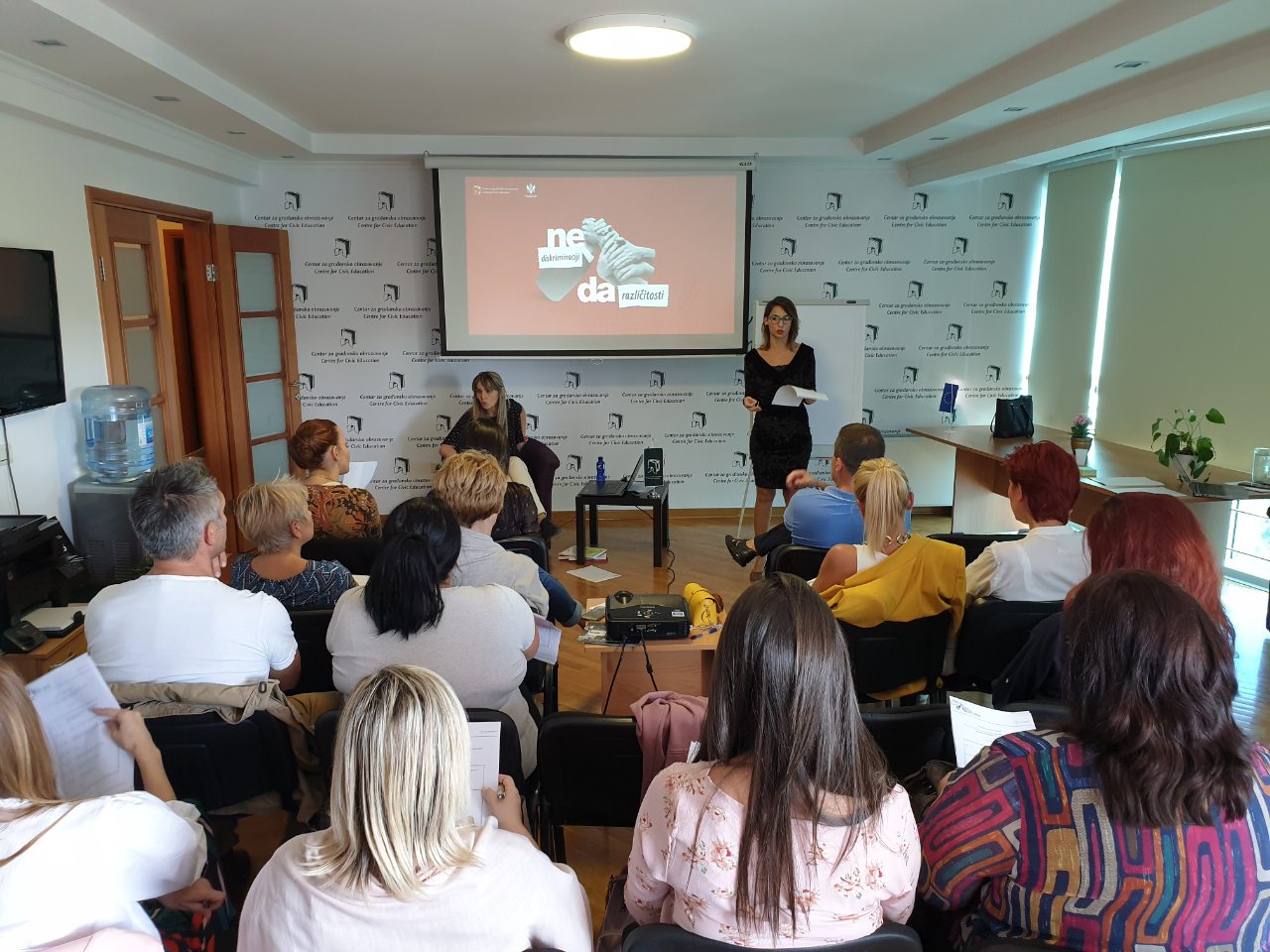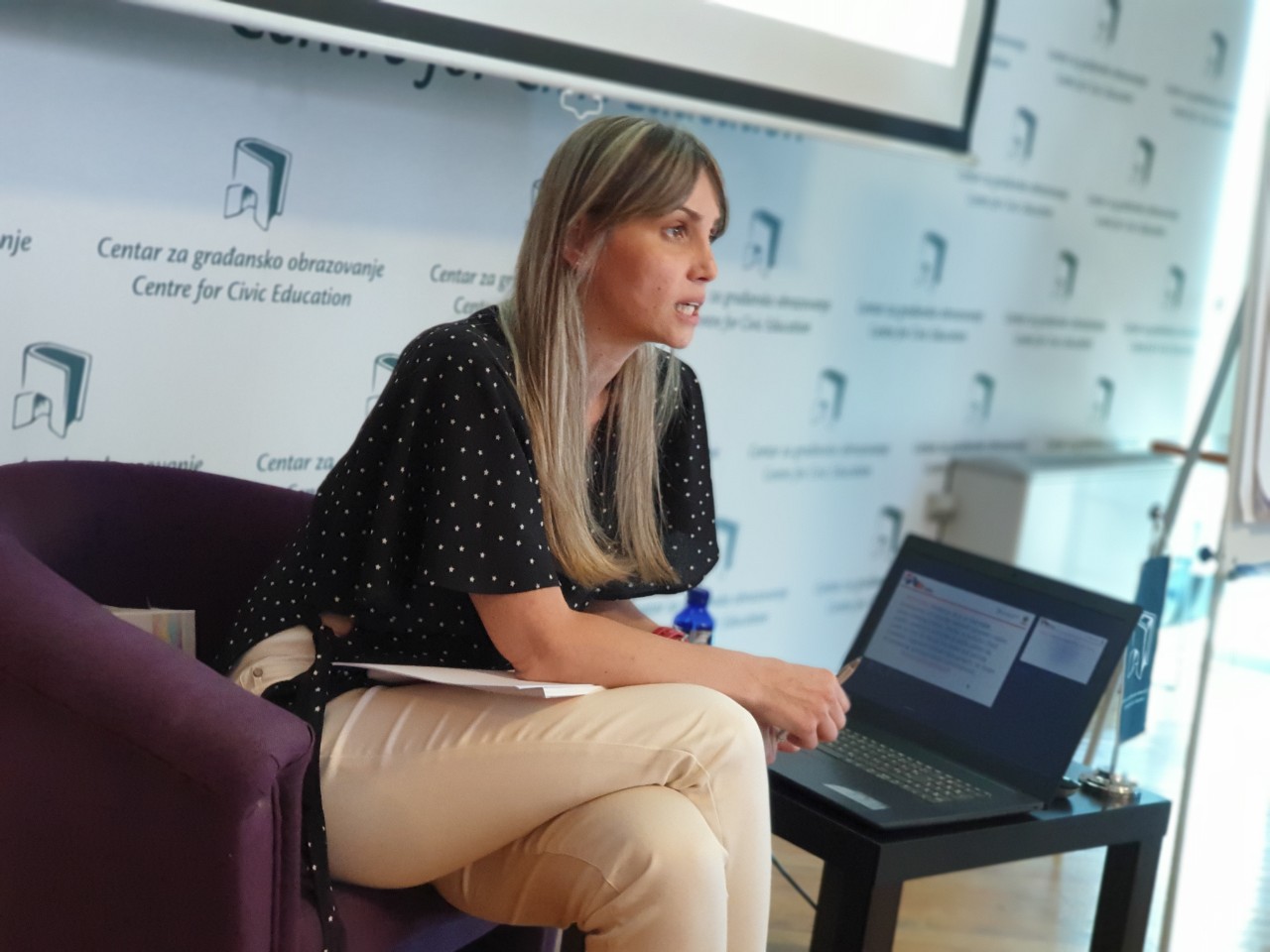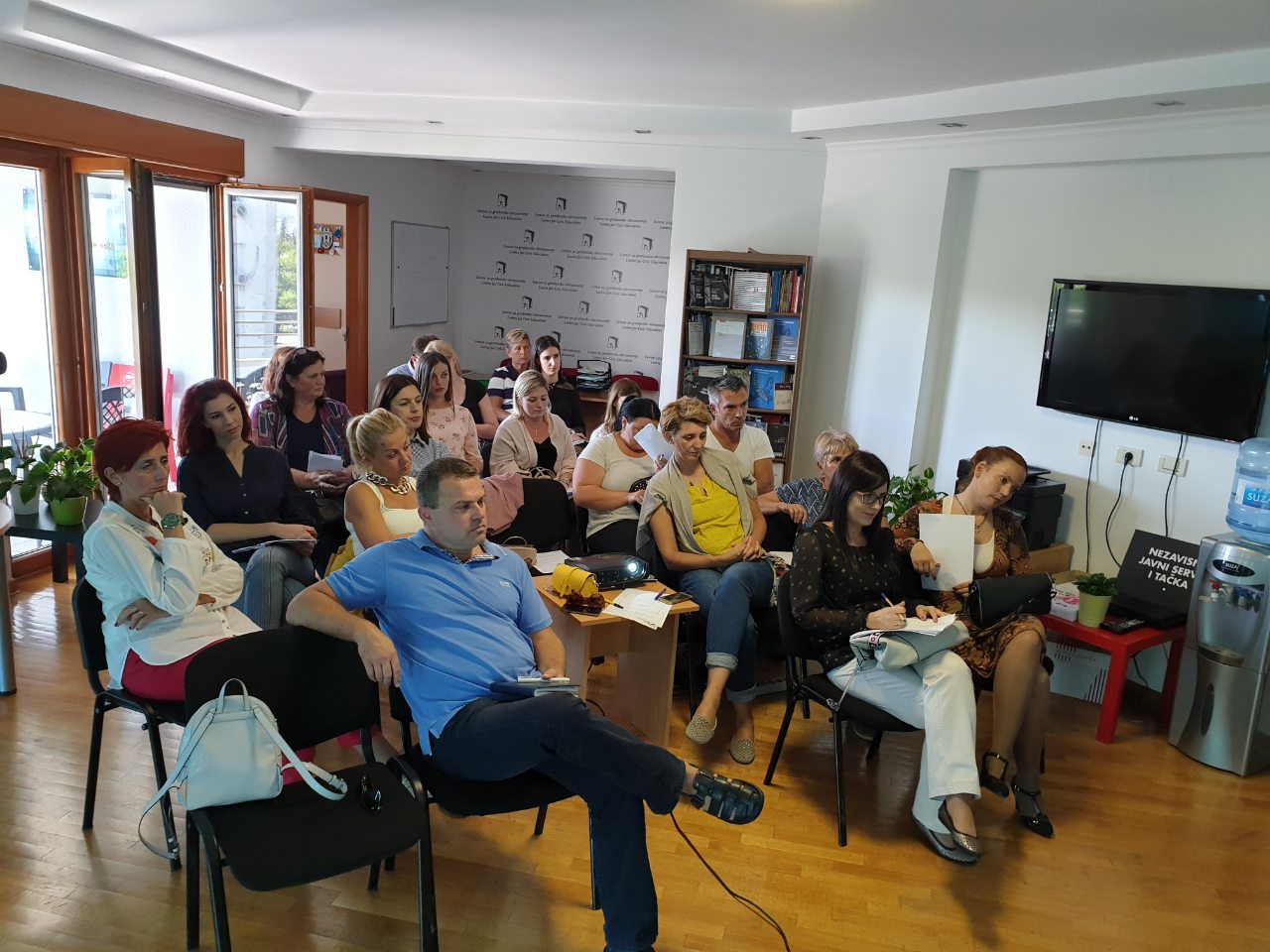Centre for Civic Education (CCE) today organized training for professionals in the field of education ‘Prevention and education of homophobia and transphobia in secondary schools in Montenegro’ within the framework of project NO to discrimination – YES to diversity, supported by the Ministry for Human and Minority Rights.
Focus of the training was on increasing of the level of awareness and knowledge of professionals working in the field of education, as well as on strengthening of their motivation to participate on long term in realization and promotion of human rights of LGBT persons within the educational system, i.e. to be a part of continuous education on human rights of LGBT persons. The training is designed as the support for professionals through counselling for high school pedagogical, teaching and administrative staff for inclusive work with students.
Zeljka Cetkovic, CCE Programme Associate and Project Coordinator, recalled the results of the CCE public opinion survey on LGBT rights, which indicated that almost half of citizens believe that the rights of LGBT persons in Montenegro are not respected, but also that the LGBT rights are not sufficiently represented in public discourse. ‘However, we are encouraged by the positive attitude of 73% of citizens towards their children attending scientific lectures about LGBT persons. It was also an incentive for us to organize workshops on prevention and suppression of violence against LGBT persons in secondary schools in Montenegro,‘ stated Cetkovic. Cetkovic shared part of the experience from 11 workshops in 10 Montenegrin secondary schools. ‘We have gathered interesting information about their perception of LGBT persons, discrimination that LGBT persons face, as well as general attitudes about LGBT rights. A significant part of these attitudes is positive, probably expressed in order to give socially desirable response and opinion. That is why we aim to position the challenges that LGBT persons face as an issue through education and to have pupils discuss this with their professors and pedagogues,’ she concluded.
Radmila Stupar Djurisic, psychologist and trainer at the training, emphasized that ‘the empowerment of the LGBT community has also caused that children, who have their concerns about gender identity and their sexuality in general, ask questions without fear and more decisively persist in getting answers. This arises the necessity to educate not only parents and professionals, but also teaching staff in primary and secondary schools who spend a significant part of days with children and whom the children trust. We need to provide children with clear answers, wise guidelines and assurance that we are here to support them with knowledge, education and humanity.’
Mladen Zivkovic, sociology professor at the Gymnasium Kotor and participant of the training, assessed that ‘education of the teaching staff on sexuality is needed’. He reminded that in addition to sociology, which has problem-oriented approach, there is a subject Healthy lifestyle that should encompass issues related to gender, sex and sexuality. ‘Methods and the manner of work, as well as the environment, requires the support of the civil sector, due to the fact that we – the professors approach this issue theoretically and cognitively while our partners from civil society provide us with the opportunity of experiential learning,’ stated Zivkovic.
Adisa Malagic, sociology professor at the Gymnasium ‘Tanasije Pejatovic’ in Pljevlja, also believes that these types of education are useful for both students and professors. ‘Both of us are not sufficiently informed about the rights of LGBT persons, and the lack of information and ignorance leads to prejudice, stereotypes and discrimination.‘ Speaking about the cooperation with the CCE during the workshop with high school students in the gymnasium in Pljevlja, she pointed out that ‘students who participated in the CCE workshop responded positively to this type of education because they perceived it as necessary, and this is increasingly being talked about in regular classes and other extracurricular activities.’
The participants of the training were representatives of twelve secondary schools from central, southern and northern part of Montenegro, gathering teaching, pedagogical and administrative staff of these school. They improved their knowledge of basic terminology related to LGBT activism and human rights, then the specifics, problems and needs of LGBT students, as well as the influence of different opinions and attitudes on homosexuality in secondary schools on work with young LGBT persons. Ultimately, through the method of sharing experiences, interactive exercises and discussions, the training participants adopted new approaches and manners of support for LGBT students.
Maja Marinovic, Project Assistant



